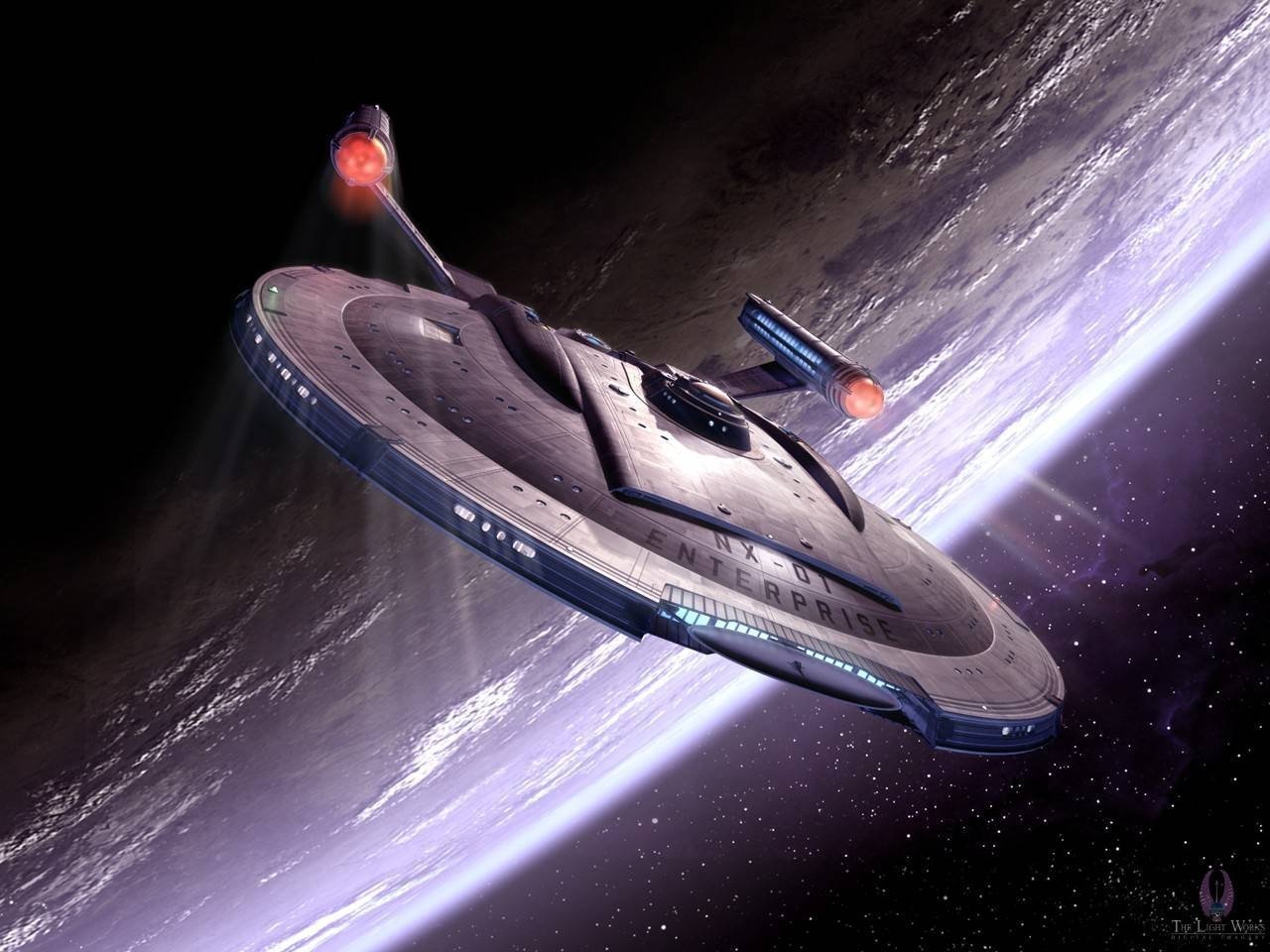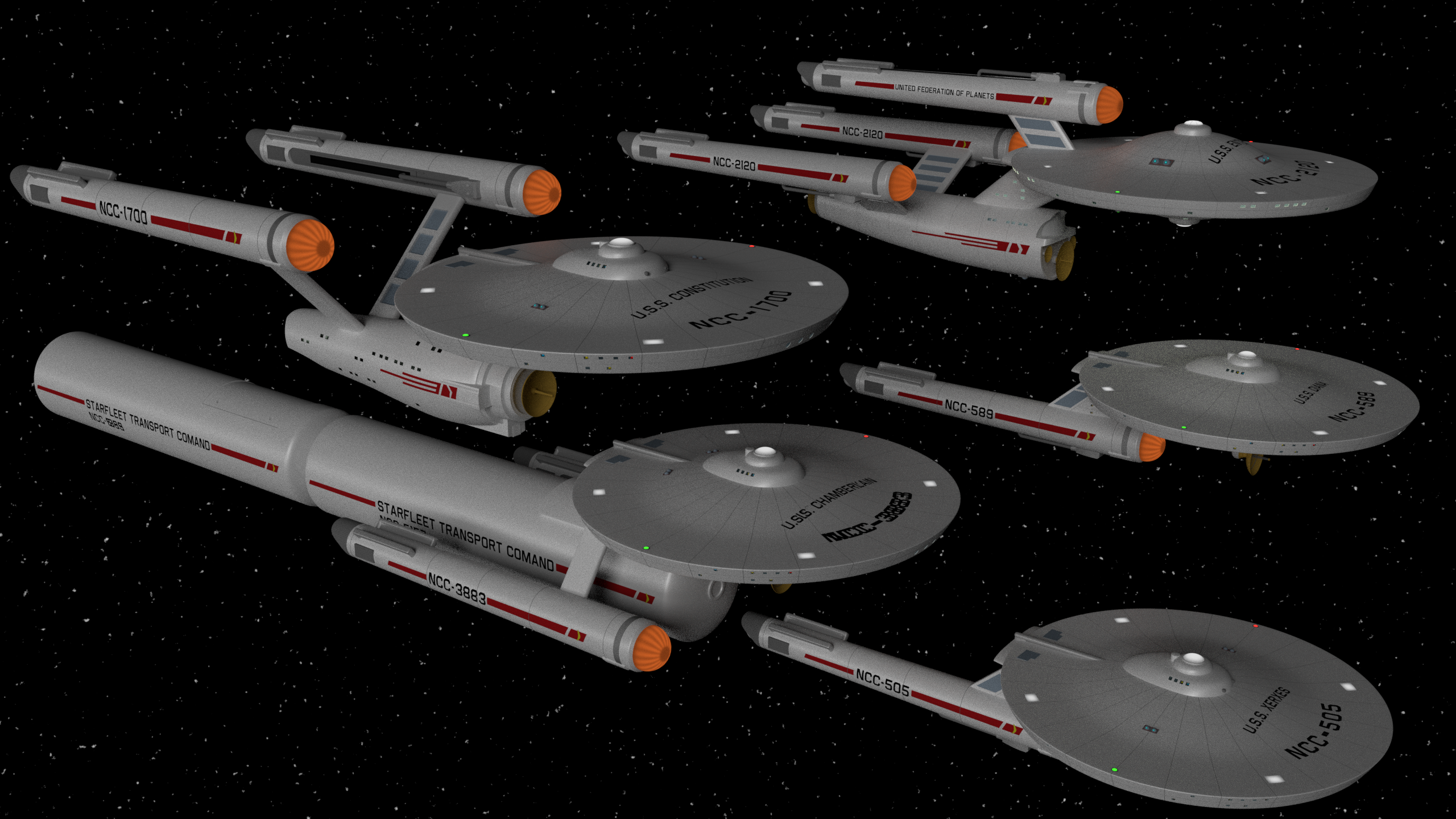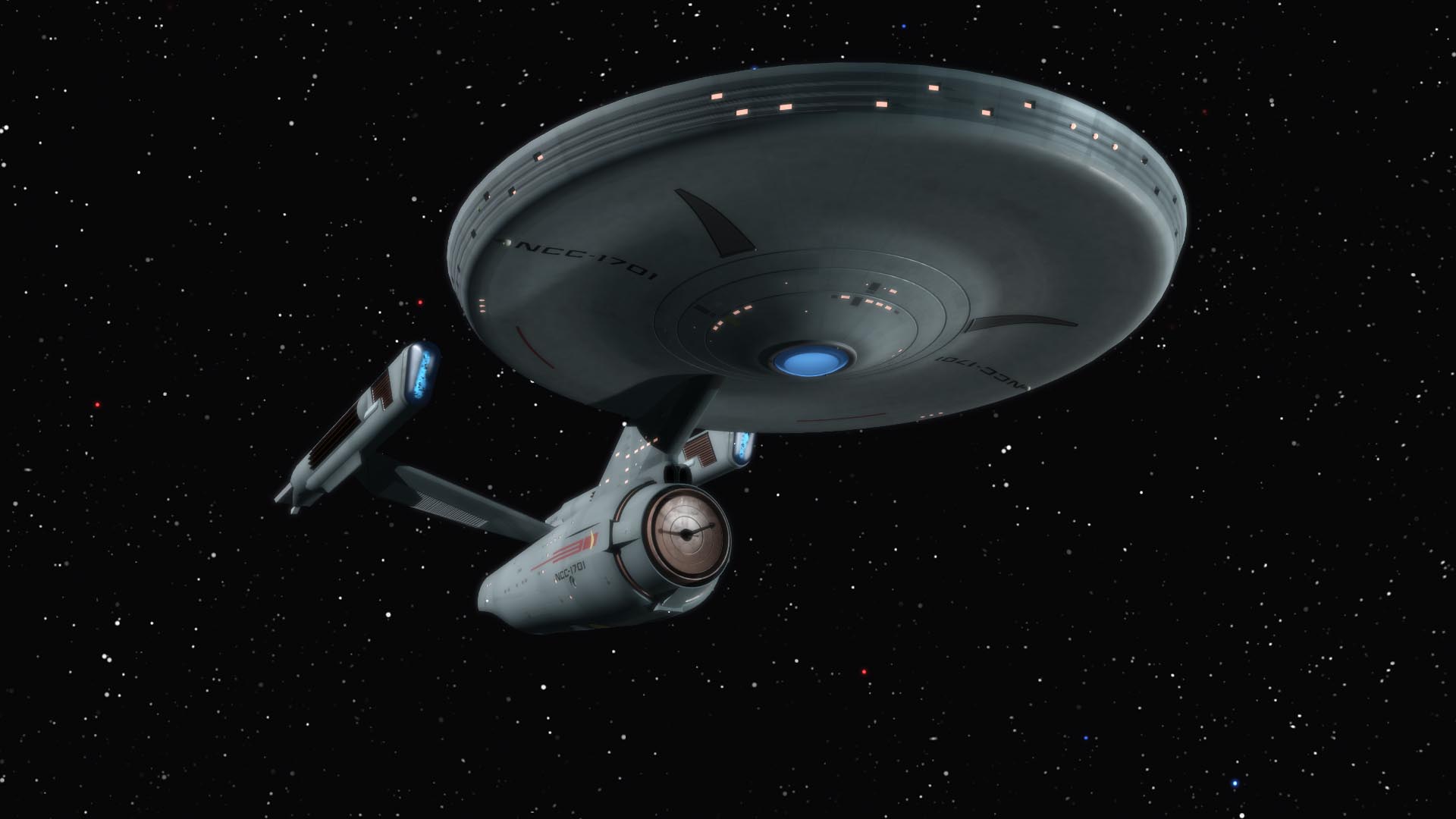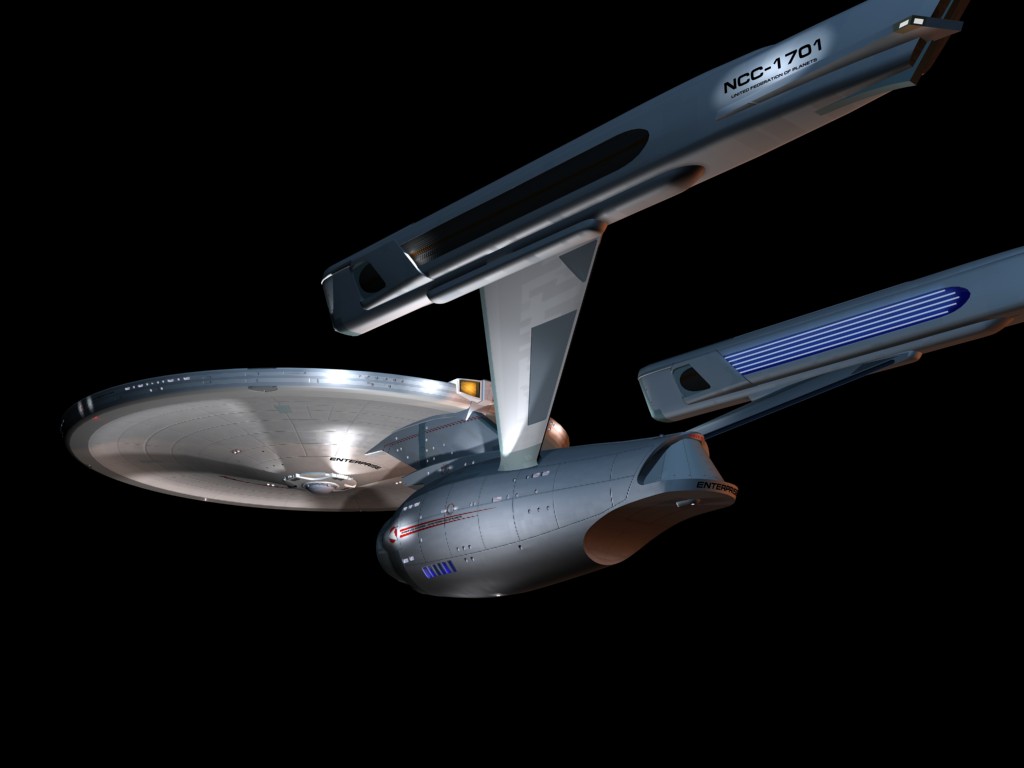History of Alternatrek
Created by Captain James McGowan on Sat Jul 2nd, 2022 @ 6:40am
19th century
1861 - 1865 - The United States faces the secession of seven states over political and economic issues, but when President Lincoln orders 75,000 militia to put down the rebellion, more states secede. The Union faces setbacks at Gettysburg, then Atlanta, when Sherman is defeated, and even Grant is pushed back due to southern emancipation and armament. President Lincoln wins reelection, but French and British recognition of the southern confederation and their non-war aid keeps them in the war long enough to win against the Americans. The Union loses the war in early 1865, then the two parties agree to a truce and a peace deal signed in Toronto, Canada.1867 - the new southern Confederation purchases Alaska from Russia, and a collection of northern Mexican states (Sonora, Baja, Chihuahua, Rio Grande, Durango/Sinaloa, San Luis Potosi, Zacatecas) in exchange for paying most of France's debt owed by Mexico and for France to leave Mexico.
1868-1876 - Ulysses Grant becomes US President and hosts President Breckinridge at the White House as a way to mend fences between the two nations. Trade resumes between them.
1871-2 - Spanish-Confederate War - A southern ship sinks in Havana, drawing the new Confederation into war with Spain. After 11 months, the Confederates win, assuming Puerto Rico, Cuba, and the entire Mariana Islands; Spain sells the Philippines to the USA to pay for the war.
1874 - After a failed coup attempt, the Hawaiian Islands request annexation by the southern confederation as a State. In Europe, Napoleon IV takes the throne from his father. His reign includes a number of diplomatic faux pas that would otherwise have been made by Kaiser Wilhelm II, alienating European public opinion from France.
1878 - Kaiser Wilhelm I is assassinated, and his other son, who would've been Wilhelm II, died in a horseriding accident, leaving Frederick II to become Kaiser. He pushes Germany closer to the United Kingdom, rather than attempting to compete with them. Germany still pursues colonies along with the British, resulting in European-majority colonies by the 1920s in Kenya, Tanzania, Rhodesia, South Africa, Namibia, Togoland, and Kamerun, through aggressive colonization efforts and deportations into the Dutch Congo of more 'troublesome' natives who resisted assimilating into the colonizers' culture. Alsace-Lorraine becomes a state of Germany, rather than a territory.
1896 - the southern confederation passes amendments protecting the right to vote of former slaves. At this point in time, southern blacks are more economically well off, and the various states have all passed laws ensuring political and civil equal rights without discrimination on race.
20th century
1912 - an assassination attempt on Franz Ferdinand brings Europe into war; the United Kingdom tarries as France tries to get them on their side, but the British side with the Germans, as their Kaiser, Henry I, is much more well-liked by the British elites and people, and the two cooperated more on their African colonies. The United States and their southern cousins remain out of war, as Russia joins on France's side, and Italy is barely any help to the German-British-Austro-Hungarian alliance; they do send food and non-war material to the British and Germans, though, keeping them in the fight longer than they could've on their own.1915 - the southern confederation enters the war when Mexico sides with France, and invades the states of Veracruz, Rio Grande, and Jefferson. The southern confederation declares war on France and Russia and prepares to send troops to Europe; the US and its president, Wilson, stay out of the war.
1916 - after the election, the United States enters the war and begins sending troops.
1917 - the war in Europe ends; the US fought in maybe four months of battles, but takes a strong seat at the peace table, confident of their having ended the war for Europe and their southern cousins. France faces the loss of Alsace-Lorraine by treaty again, demilitarization, reparations, and loss of its remaining western islands to the southern confederation. Germany's royalty remains intact, Kaiser Henry having put around him much more capable men who were more pro-British like his predecessor, who could cooperate with the British effectively. Austro-Hungary faces some internal instability from the rising nationalism of its various peoples. The League of Nations is formed to prevent war, though the two American powers do not join. Russia undergoes a revolution, putting the communists in power, with monetary aid from a number of New York bankers. Greece reclaims Constantinople, Cyprus, and the Aegean coast from Turkey. Allied assistance keeps the Turks from reclaiming Constantinople from the Greeks.
1923 - Charles de Gaulle is arrested in a failed coup against the Parisian government to establish a stronger centralized government.
1926-27 - Austro-Hungarian civil war ends in the break-up into 'German Austria', Hungary, Yugoslavia, and Czechoslovakia; Romania takes almost all of Transylvania, but is stopped by the League of Nations. Each join the League of Nations in their own right.
1929 - Kaiser Henry I dies and his son Prince Sigismund becomes Kaiser Wilehlm II; the funeral and coronation are widely attended by European and American dignitaries. The stability of Germany is shaken by the crash in New York, which ripples south then east into Europe.
1932 - Charles de Gaulle seizes power in France; Reichhardt von Amerling gets funding from the French to attempt a German fascist coup against the royal family, but fails and flees to France. His close associate, David Henrichssohn, does achieve a coup in Austria, bringing it closer to France under his governance. Poland's Józef Piłsudski becomes its military dictator and in 1936 allies with France under promise of moving Poland's border west. The southern confederation comes out of its economic downturn through regular economic cycles and lack of central bank interference, while the Union remains in a depression.
1938 - France demands territorial concession from the Alsatians and Belgians to bring 'French' citizens into the French mother country. Poland uses a false flag to launch an attack on the eastern portion of Germany, where Germany had just moved troops from, leaving it almost defenseless against the attack. When troops begin moving east, France initiates its attack into Alsace-Lorraine, 'liberating' them from Germany, and inaugurating the second world war. Austria's fascist leader works with collaborationists in Bavaria to annex it into Austria, depriving Germany of a large territory and manpower. Japan is cut off from Texan oil as a result of their aggression in the Pacific. 1941 - France finally causes German capitulation with a three-pronged attack against them, taking western Germany, Poland taking eastern Germany, and Austria taking Bavaria and Wurttemberg. Most royal families flee to the UK, while many minor nobles are sent to work camps. The Americans and southerners work on 'fleet exercises' together in the Pacific, based out of Hawaii, when the Japanese attack several dozen ships from both powers, bringing them into the war in the Pacific. Mexico, having gotten funding from Europe in the 30s for its own government under Camacho, launches a massive wave that reaches all the way up to Texas and halfway into Arizona and New Mexico by 1942, forcing the Americans and southerners into a 3-front war. The Turks ally with the French to retake the Balkans, and are able to conquer Greece. 1943 - Poland attacks Russia, which was mobilizing on their border; Piłsudski wanted to recreate Poland-Lithuania all the way to the Black Sea. The Russians were not prepared and entrenched, resulting in devastating losses to their equipment and manpower. 1944 - Mexico is finally defeated; Allied landing through Denmark finally takes Berlin in November, and the push east and west begins forcing the Axis out of Germany. 1945 - the war ends in Europe in May with Paris and Warsaw surrounded. Vienna fell via internal coup in December, and joined the allied powers to defeat France and Poland. Soviet occupation to roll up the resistance led them into Czechoslovakia, Hungary, and Yugoslavia, along with much of eastern Poland. The war in the Pacific ends when Japan surrenders in August; the southerners detonated their atom bomb on an uninhabited island, while the Americans bombed Hiroshima the next day. The United Nations is founded in San Francisco, and moves to New York, on land ceded by the Rockefellers. The small Austrian territory of Teschen is ceded as an independent Duchy and the basis for the European Economic Community and the Coal and Steel Cooperative. Poland is divided into east and west. Belgium's elite cooperated with France, and the war left it in shambles; it is unified with the Netherlands, and the former Artois and Cambray are returned to the Netherlands; the province of Luxembourg is returned to Luxembourg. The Walloon and French languages are suppressed and begin to fade out over the next 50 years until they are only spoken by the most elderly of Netherlanders. Due to Turkish participation with France, southern Turkey is occupied by the US, who finds more evidence of concentration camps, deporting the population into Soviet North Turkey, and ceding South Turkey to Greece. In Europe, the fascist concentration camps of dissidents and Jewish Europeans results in international outrage and leads to the creation of Israel in 1948.
1947-49 - Chinese Civil War ends with a northeastern, almost entirely Manchurian communist 'North China' and a capitalist 'South China' that is authoritarian until the 60s when it begins to liberalize under the continued influence of international trade. An attempted war in Korea fails, the Korean communists being beaten back into North China, leaving Korea united. 1956 - Czechoslovakia revolt is barely stopped by the Russians, as the Germans, Americans, and southern confederation manage a negotiation where Czechia secedes from Slovakia, which remains in the Soviet bloc. A Hungarian revolt is crushed the same year. An attempted communist coup in Germany rocks the royal family but is stopped.
1960s - the Americans begin granting civil rights to blacks who had been denied for over a century through several federal legislative efforts. The southern confederation celebrates its centennial and its president chooses the first black Secretary of State, and first native Hawaiian Secretary of Trade. The Secretary of the Interior becomes Charles Running Bear Peltola. A political crisis emerges when Texan Lyndon Johnson attempts to steal the southern presidency and narrowly avoids the penalty for treason, Arizonan Barry Goldwater pardoning him, but Congress barring Johnson from any office in the future. The colonies of Kenya, Tanzania, Namibia, South Africa, and Rhodesia finally grant civil and political rights to their minority native populations and become independent of their mother countries, Germany and the United Kingdom. Togoland, Kamerun, and Ghana and other countries also become independent.
1960s-1990s - The United States conduct 'anti-communist' military missions in Africa, countering Soviet propaganda across the continent. Many US companies become very wealthy with the 'infrastructure' projects across the continent, though it leaves many countries indebted to the United States for the 'improvements.'
1971-2 - United States closes the gold window and switches to the 'petrodollar,' and spending takes off even further, using Rashidi Arabian oil to back the dollar.
1989-1991 - communism falls in Europe. Poland reunites. Czechia and Slovakia reunite into Czechoslovakia. Czech people are much more religious than they would've been under communism. Europe begins to move towards a political and economic union. Former communists are 'rehabilitated' and their ideologies are taught against by the new governments as a part of 'de-soviet-ization' much like de-fascist-ization in the 1940s.
21st century
1992 - William Clinton, whose father moved into Missouri from Arkansas before he was born, becomes President of the United States.
2000 - Henry Rogers is elected the first black President of the southern confederation. 2001 - European Union comes into being with a Euro currency, based in the Duchy of Teschen. Germany, France, the Netherlands, Italy, Spain, Portugal, Denmark, all introduce local euro currencies. The United States leads a coalition to war against Afghanistan in retaliation for the attack on the twin towers in New York.
2003 - The United States attacks Iraq; the southern confederation leaves the occupation forces once a stable government is formed, as their government doesn't want to occupy foreign countries. President Jessica Howard took her confederation out of Iraq and began demobilizing her army back to their state militias shortly after her inauguration in 2006.
2006 - Vice President Jessica Howard becomes the first elected female President of the southern confederation.
2012 - The United States backs a coup attempt in Libya, which was attempting to launch a gold-backed currency.
2016 - Haley Clinton wins the US Presidency as the first female (US) President, to great fanfare, defeating a New York billionaire on the Republican side.
2020 - A pandemic arises that causes mail-in voting across the US, resulting in an unexpected win for President Clinton, despite her poll numbers. Lockdowns continue; the US economy is propped up by stimulus while the gold prices that would skyrocket are suppressed.
2022 - Some US media begin noticing a 40% increase in the average number of deaths per day in the US and across Europe, and falling birthrates.
2022-2026 - around 4 billion people die off with a dramatic rise in cancers and diseases, the UN, WHO, and other international organizations using it as a call for world government and a New United Nations with the power to declare 'health emergencies' in any given nation, controlling its borders and economy at any time.
2052-2058 - WWIII aka the Eugenics Wars are fought, with 600 million casualties. Many humans believe that with under 4 billion people on Earth, and many of them starving or sick with radiation or other pollution, that the human race will go extinct. Many governments are shattered across the globe. The genetically enhanced humans escape on a sleeper ship, the Botany Bay.
2063 - First contact between Zefram Cochrane and the Vulcans off Mount Pinatubo, New Mexico, CS. Vulcans begin to help decontaminate the Earth of many industrial pollutants, and birth rates finally begin to climb.
2065 - 2096 - Humans make mass migrations to the stars, claiming dozens of M-class planets, alarming the normally stoic Vulcans, who had already shared impulse rocket stabilization, artificial gravity, deflector technology, and improved air recycling technology with the humans. Vulcans dramatically slow their technology sharing, causing human resentment. This period begins the rise of many novels and movies about the adventure into the stars. New India, New Brittania, New France, Nova Roma, New Russia, New Japan, and several other colonies are claimed by their respective nations to be settled by their own people, and begin to be used to 'restore the glory' of their nations - i.e. pet projects basking in the historic glory of the various nations and their cultures. New France has a restored style of French architecture with vast rail lines; New Brittania has a 'restored English' with more historic pronunciation and grammar from several centuries past, and towns that remind you of Victorian England. Nova Roma speaks Latin in the reconstructed pronunciation, and has a 'modern' Roman feel to it. Earth during this period gains a lot of hope and people feel 'alive' again. Technology like solar roof tiles placed on most homes nearly eliminate centralized power plants running coal and gas, homes now selling excess power to the grid, and drawing at night if they don't have enough stored power themselves. Vulcan technology has allowed the water on Earth to be purified of microplastics, radioactive isotopes, pharmaceuticals, fluoride, chlorine, and other industrial chemicals, allowing most sea life to make a comeback.
22nd century
2151 - the NX class Enterprise is launched as the first Warp 5 ship (225c) from Earth, the first of 13 ships as a result of the first interstellar human cooperation between Earth and her colonies.

2157 - The Poseidon Class ship is released by Earth and her colony worlds.
 2156-2160 - Earth-Romulan War breaks out, fought with very primitive weaponry by 24th century standards. The NX Mark II Class is released, with a secondary hull containing a more reliable and more powerful warp core.
2156-2160 - Earth-Romulan War breaks out, fought with very primitive weaponry by 24th century standards. The NX Mark II Class is released, with a secondary hull containing a more reliable and more powerful warp core.
2161 - the United Federation of Planets is formed between Earth, Vulcan, Tellar, Andor, Alpha Centauri, and the Earth colonies, which will become independent upon their own production of warp capable ships without external aid from Earth.
2164 - Trill become an allied world of the Federation, but refuse to accede to the Federation. 2196 - Over 250 Daedelus Class ships have been produced, 41 lost either in accidents, battle, or otherwise. The class is decommissioned in favor of more modern designs.
23rd century
2320s
A new style of starship is created, with the Saladin, the Stuart, and other classes using a larger, more streamlined saucer, a modern warp 8 engine, and monotronic computers.
2230s
2230 - January 6 - Spock is born in Shi'Kahr on Vulcan to Sarek and Amanda.
2233 - March 22 - James Tiberius Kirk is born to his parents George and Winona in Riverside Iowa.
2244 - January - USS Constitution launched from Earth, the first of a new generation of starships. Its shakedown cruise means it cannot participate in the Axanar conflict, but it does help end it quicker with the Klingons knowing of its existence. 2245 - USS Enterprise is launched from Earth under Captain Robert April. His first mission stops an Orion slave ship from between the non-aligned Earth colonies of New Prussia, Nippon II, Alpha Kenya III, and the Orion syndicate from selling to the non-aligned worlds. He goes on to have a huge number of adventures and becomes a legend amongst captains.

Captain April's grandfather, also from Georgia, was the President of the southern confederation, and still one of the favorites amongst presidents well into the 24th century. 2251-2263 - Captain Christopher Pike captains the Enterprise on two 5-year missions, including to Talos IV, the only forbidden star system within the Federation. His missions include finally bringing in eight non-aligned human colony worlds into the Federation, something not done in over a century, and preventing a Federation-Gorn War. 2264-2269 - Captain Kirk commands the Enterprise on an epic 5-year mission, including leaving the galaxy twice. 2266 - the much trumpeted 'Phase II' refit of the Bonhomme Richard is completed, promising vast improvements over the current Mark III ships, bearing the Shuvinaaljis FWF-2 engines, which ended up being remarkably similar to the FWG-1 engines from Leeding Engines Ltd.

Three total ships are made in this subclass, but the improvements found during trials do not warrant further upgrades of other Constitution-class ships, especially when the 'Enterprise' subclass proposed by Montgomery Scott is finally approved in 2268 with brand-new engines and design language coming from Andor, Vulcan, and Earth cooperative Leeding Engines.
2271 - Montgomery Scott completes a nearly 18-month overhaul of the Enterprise, as a Mark IV Constitution-Class ship

2291 - Star Trek IV: The Undiscovered Country - An explosion at Praxis threatens the Klingon Empire, and a conspiracy to continue the galactic military-industrial complex profiteering then involve Kirk being framed for the assassination of the Klingon Chancellor, until he escapes Rura Penthe and exposes the conspirators.
2294 - The Enterprise-B launches from Earth, and rescues a series of El Aurians. The energy ribbon, the Nexus, caused a momentary temporal displacement, placing the Enterprise B into the late 24th century, with Captain Picard and his crew, along with Captain Harriman, Captain Kirk, and Kirk's crew as well. They stop the El Aurian Soran, but with critical damage to the Enterprise-D, the ship is retired in orbit of the planet and towed while the crew are rescued by Starfleet. (i.e., the D doesn't crash, but is damaged just enough so the D crew move to the E, allowing the D to become a dreadnaught later). The B returns to the late 23rd century with Kirk's crew intact, though they did have a moment where they were in the ribbon before returning to reality.
24th century
Categories: Information